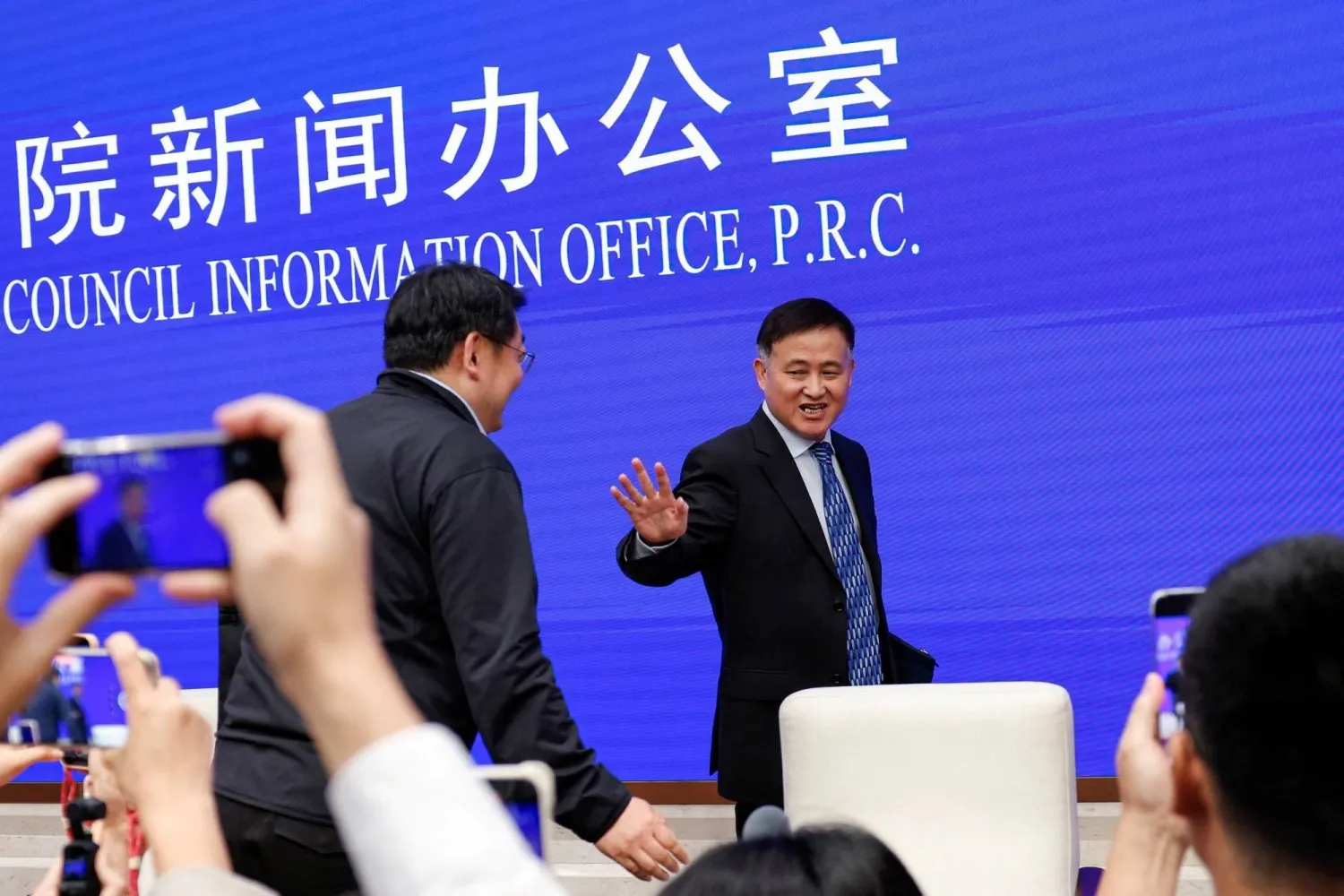China has unleashed a swath of stimulus measures including cuts to its benchmark interest rate as Beijing battles a slowdown in the world’s second-largest economy.
In a rare public briefing on Tuesday, the People’s Bank of China (PBoC) also announced government funding to boost the stock market and aid share buybacks, as well as more support for the stricken property sector.
With economists skeptical about whether China will hit the government’s full-year growth target of 5%, PBoC governor Pan Gongsheng said the measures aimed to “support the stable growth of China’s economy” and “promote a moderate rebound in prices.”
The package of measures sent China’s CSI 300 index of Shanghai- and Shenzhen-listed shares up 3.8% on Tuesday following the announcement.
Hong Kong’s Hang Seng index rose 3.9%, led by mainland Chinese companies listed in the territory.
Pan said the PBoC would reduce its short-term seven-day reverse repo rate, the central bank’s main policy rate, from 1.7% to 1.5%.
The PBoC will also cut the reserve requirement ratio, the amount of reserves lenders must hold, by 0.5 percentage points, he said, while signaling a further potential cut of 0.25 to 0.5 percentage points this year.
The RRR cut would add 1 trillion Chinese Yuan ($142 billion) in liquidity to the banking system, he said.
Goldman Sachs said in a note the “rare simultaneous cut of policy rates and RRR, the relatively large magnitude of cuts and the unusual guidance on further policy easing indicated policymakers’ growing concerns over growth headwinds.”
But economists said that with loan demand muted among households, more direct government fiscal spending would probably be needed to improve the growth outlook, according to the Financial Times.
China’s economic growth has decelerated in recent months as a prolonged slowdown in the property sector weighs on consumer sentiment.
Economists have slashed their growth forecasts to less than the government’s official target of about 5% for 2024 as deflationary forces have persisted, with producer prices declining since last year.
Robust shipments of electric vehicles, batteries and other goods have not fully offset the weaker domestic economy.
“The Chinese economy is recovering and the monetary policies introduced by our bank this time will help support the real economy, incentivize spending and investment and also provide a stable footing for the exchange rate,” Pan said.
The central bank head was joined by Li Yunze, director of the National Financial Regulatory Administration, the new financial sector watchdog, and Wu Qing, chair of the China Securities Regulatory Commission, the markets supervisor.
The officials said the government will set up a swap facility allowing securities firms, funds and insurance companies to tap liquidity from the central bank to purchase equities. There are also plans to set up a specialized re-lending facility for listed companies and major shareholders to buy back shares and raise holdings.
“A fresh stimulus push is certainly positive,” said Liu Chang, macro economist at BNP Paribas Asset Management. But with a weak economic momentum heading into the fourth quarter, officials needed to act “very quickly in the weeks ahead to implement additional measures if they wish to get to the 5% target”, Liu said.
“We think there is still a worrying lack of urgency behind their words around stimulus,” he added.
In other measures, the PBoC lowered mortgage downpayments for second homes from 25% to 15%.
Second properties had been subject to more onerous conditions to curb real estate speculation, previously a focus for President Xi Jinping.
The central bank also said it would improve the terms of a program under which it has made 300 billion Chinese Yuan available to local government-owned enterprises to help them buy unsold inventory from property developers.
But the central bank stopped short of expanding the program, amid signs it was struggling to gain traction.
Economists have said reducing China’s vast stock of unsold housing is crucial to restoring confidence and reviving domestic consumption.
China's yuan hit a 16-month high against the US dollar on Tuesday, after the central bank of the world's second-largest economy revealed the new stimulus measures.
China-sensitive assets like stocks, commodities and the euro rallied in tandem.









